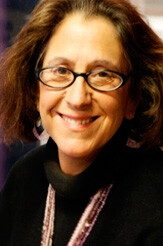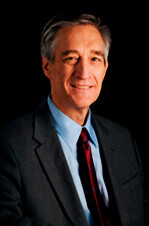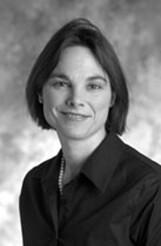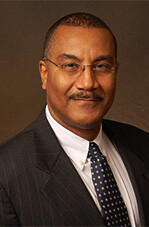
Four finalists have been selected for the position of dean of the UNL College of Arts and Sciences. Selected by a search committee, the candidates will visit campus separately Feb. 24 through March 7.
Each candidate will participate in a public presentation during his or her visit. Faculty, staff and students are encouraged to attend the presentations, each of which will conclude with an open forum.
The finalists are:
• Barbara Risman, professor and head of the Department of Sociology at the University of Illinois at Chicago;
• Stephen Esquith, dean of the Residential College in the Arts and Humanities at Michigan State University;
• Susan Sterett, professor of political science, University of Denver; and
• Joseph S. Francisco, Moore distinguished professor of chemistry, Purdue University.
Learn more about each finalist at the College of Arts and Sciences Dean Search homepage.
Risman’s public presentation will be 3:30-5:30 p.m. Feb. 25 in the Lied Commons. Risman, professor and head of the Department of Sociology at the University of Illinois at Chicago, was previously Alumni Distinguished Research Professor at North Carolina State University and the Director of Graduate Studies at NCSU.
She is the author of two books and more than two dozen journal articles in venues including American Sociological Review, Gender & Society, and Journal of Marriage and the Family. She has been editor of the journal Contemporary Sociology and is one of the editors of a book series. She is president of the board of directors of The Council on Contemporary Families, an organization that brings new research findings and clinical expertise to public conversation.
Risman has several forthcoming projects, including a new book and a qualitative study of gender among today’s young adults and an analysis of the efficacy of grants designed to integrate women into science, technology engineering and math disciplines.
Risman completed her undergraduate studies at Northwestern University and earned a doctorate in sociology from the University of Washington.
Esquith’s public presentation is 3:30-5:30 p.m. Feb. 27 at the Mary Riepma Ross Media Arts Center. Esquith, dean of the Residential College in the Arts and Humanities at Michigan State University, has been working on ethical problems in developing countries since 1990. His research and teaching has focused on democratic transitions in post-conflict situations; he has written on the rule of law, the problem of democratic political education, mass violence and reconciliation and moral and political responsibility.
Esquith is the author of critiques of classical and modern liberal political philosophy and on mass violence and democratic political education. He spent the 2005-06 academic year teaching and working with colleagues at the University of Bamako, Mali, as a senior Fulbright scholar. He returned to Michigan State in fall 2006 to become Dean of the Residential College in the Arts and Humanities and also serves as one of the leaders of the doctoral specialization in ethics and development, which he helped to found.
Esquith completed his undergraduate study at Harvard College. He received his doctorate in political philosophy from Princeton.
Sterett’s public presentation and open forum is 3:30-5:30 p.m. March 4 in the Lied Commons. Sterett, a professor of political science at the University of Denver, also was associate dean of the divisions of arts, humanities and social sciences and was chair of the department of political science. She is currently on leave at the National Science Foundation, where she is the program director for Law and Social Sciences. In addition to managing the program, she has collaborated with colleagues on a cross-directorate coastal sustainability solicitation.
While at NSF, she has participated in collaboration with the National Institute of Justice, in a forensics working group, and in the Legal Aid Interagency Roundtable convened by the White House Domestic Policy Council.
Sterett’s areas of scholarship include law and society, social welfare in Western post-industrial states, displacement, American political development and citizenship. She was a Fulbright scholar at the Centre for Research on Ethnic Relations at the University of Warwick in 1995, a Fulbright scholar at the China University of Political Science and Law, a Fulbright senior specialist at Tongji University in Shanghai and a fellow at Griffith University in Brisbane, Australia. She is the author of two books and numerous articles and the editor of a book and of a special issue of a journal.
Sterett completed her undergraduate studies at the University of California at San Diego and earned a doctorate in the Jurisprudence and Social Policy Program at the University of California, Berkeley.
Francisco’s public presentation and open forum is 3:30-5:30 p.m. March 6 in the Lied Commons. Francisco, Moore distinguished professor of chemistry at Purdue University, was previously a research fellow at Cambridge University in England and a provost postdoctoral fellow at the Massachusetts Institute of Technology. In 1991 he was a visiting associate in planetary science at the California Institute of Technology. In 2006 he was appointed as the William E. Moore Distinguished Professor of Earth and Atmospheric Science and Chemistry at Purdue, where he also spent time as associate dean for research in the College of Science.
Francisco has received an NSF Presidential Young Investigator Award, an Alfred P. Sloan Fellowship and a Camille and Henry Dreyfus Foundation Teacher-Scholar Award. He received an American Association for the Advancement of Science Mentor Award and a John Simon Guggenheim Fellowship, which he spent at the Jet Propulsion Laboratory at the California Institute of Technology. He is a fellow of the American Chemical Society, American Physical Society and the American Association for the Advancement of Science. He is a member of the American Academy of Arts and Sciences and the National Academy of Sciences. He also is a co-author of the textbook “Chemical Kinetics and Dynamics.”
Francisco completed his undergraduate studies in chemistry at the University of Texas at Austin and earned a doctorate in chemical physics at MIT.











